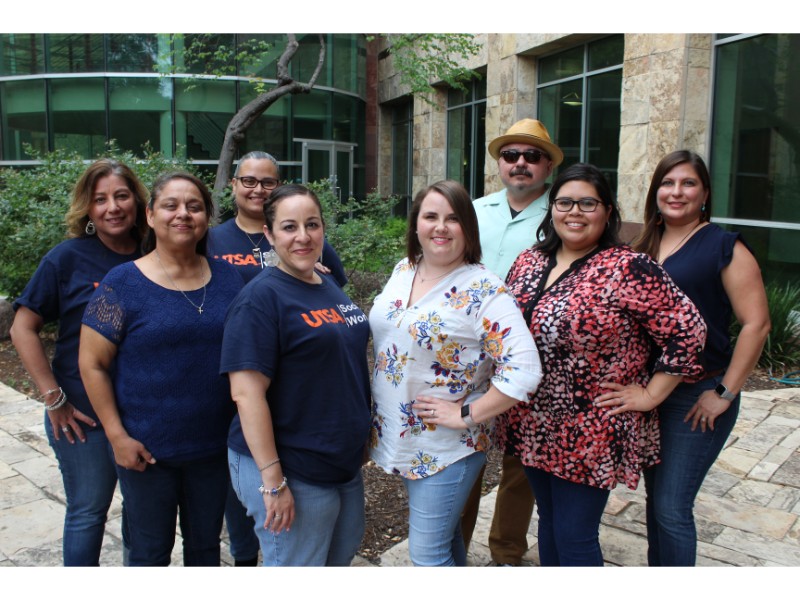Posted on June 17, 2018 by Jana Schwartz

Social workers from Corpus Christi, Texas now have their master’s degrees thanks to a federally funded program that is helping Texas Child Protective Services (CPS) employees obtain their graduate degrees in social work. Senior Lecturer Jolyn Mikow oversees the Title IV-E program funded by the Texas Department of Family and Protective Services.
The 2018 cohort is the second graduating class from Corpus Christi. Students include employees of the Texas Department of Protective and Family Services Regions 8 (San Antonio) and 11 (Corpus Christi).
The program pays the tuition in the form of stipends to enable Child Protective Services (CPS) employees to obtain their graduate education.
Researchers in the department saw a need to improve child welfare in Corpus Christi, an under-served region of the state. CPS employees who obtained their Master of Social Work through UTSA are now better equipped to address child well-being and help vulnerable families. They will work toward developing solutions to reduce the rates of child abuse and neglect and help reverse child death rates.
"Given the high rates of child abuse and neglect in Texas, CPS employees need the specific education, knowledge and the skills this degree provides to effectively intervene with the struggling families," said Mikow.
Faculty from the UTSA Department of Social Work travel to Corpus Christi to deliver the curriculum to CPS employees all year round by offering six hours of class each Monday for spring, summer and fall semesters. Like their San Antonio counterparts, the MSW students complete two 450-hour practicums during the program at community agencies such as Corpus Christi, ISD, various hospice agencies in the community, the behavioral health center of Nueces County, and Metro ministries homeless shelter services. It takes about three years for a cohort to complete the program to graduate.
The graduating class said that the one-on-one relationships and individualized student attention provided by their instructors were truly beneficial. They were able to get in-depth with many subjects. The faculty bring an extensive amount of practice and research to the classroom, enabling students to empower their communities. One of the participants, who graduated at the same time as her son, also a UTSA Roadrunner, says that without the program, it would have been more challenging to further her education.
The class of 2018 developed a sense of camaraderie and built long lasting relationships with themselves and members of the community. The Corpus cohort will take what they have learned and apply the knowledge toward improving child welfare and delivering quality services to families of low resource populations.

